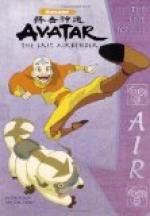“When I left the settlement,” he began, as he turned his mooseskin, hammock-like chair toward the open fireplace, and invited his guests to do likewise, “I struck straight into the wilderness. I had a little food, a small rifle and fishing-tackle. To me a summer in the woods with such equipment was no problem at all. I meant to go northwest for, perhaps, two hundred miles, camp there for the summer, then work my way back by going southwest. I would then be far from my crime and would be safe. That is what I meant to do. But once in the silent woods, I began to think of the wrong I had done. I would have given worlds to be back. But it was too late. I had to keep going. Fording rivers, creeping through underbrush, climbing ridges, crossing swampy beaver-meadows, fighting the awful swarms of mosquitoes, I got through the summer, living on fish, game and berries. You see, I had become terribly afraid of the Red Riders—the mounted police. I had heard that sooner or later they always got a man. I was determined they would not get me.
“At last, snow-fall warned me to prepare for winter. I was in this valley that day, and I’ve been here ever since. If I had ever got any pleasure from that stolen money, which I haven’t, I would have paid for that pleasure a hundred times that first winter. Fortune favored me in one thing: the caribou came by in great droves, and, before my ammunition was exhausted, I had secured plenty of meat. But at that, I came near dying before I learned that one who lives upon a strictly meat diet must measure carefully the proportions of lean and fat. Someway, I learned. And somehow, starving, freezing, half-mad of lonesomeness, I got through the winter, but I am glad you did not see me when the first wild geese came north. If ever there was a wild man, dressed in skins and dancing in the sun, it was I.”
“But the wheat?” asked Barney. “How did that happen?”
“I am coming to that,” smiled his host. “Early that spring,” he continued, passing his hand across his forehead, as if to brush away the memory of that terrible winter, “the Indians came. They came from the Dismal Lake region. Driven south by forest fires, they were starving. I had a little caribou meat and shared it with them; that made them my everlasting friends.”
“And you got the wheat from them?” interposed Barney.
“Hardly. I doubt if they had ever seen a grain of wheat.
“Well, we lived together that summer. But I am getting ahead of my story. Shortly before they arrived, I noticed some strange-looking caribou in the clearing. I had no ammunition, so could not shoot them. Anyway, they were skin-poor and would be of little use to me. But they seemed strangely tame, coming close to my cabin at night. They were company, and I was careful not to frighten them away. One night, in the moonlight, I caught a glistening flash from the ear of the oldest doe. Then, too, I noticed that one of them had unnaturally short antlers. A closer look told me that these antlers had been cut off.




